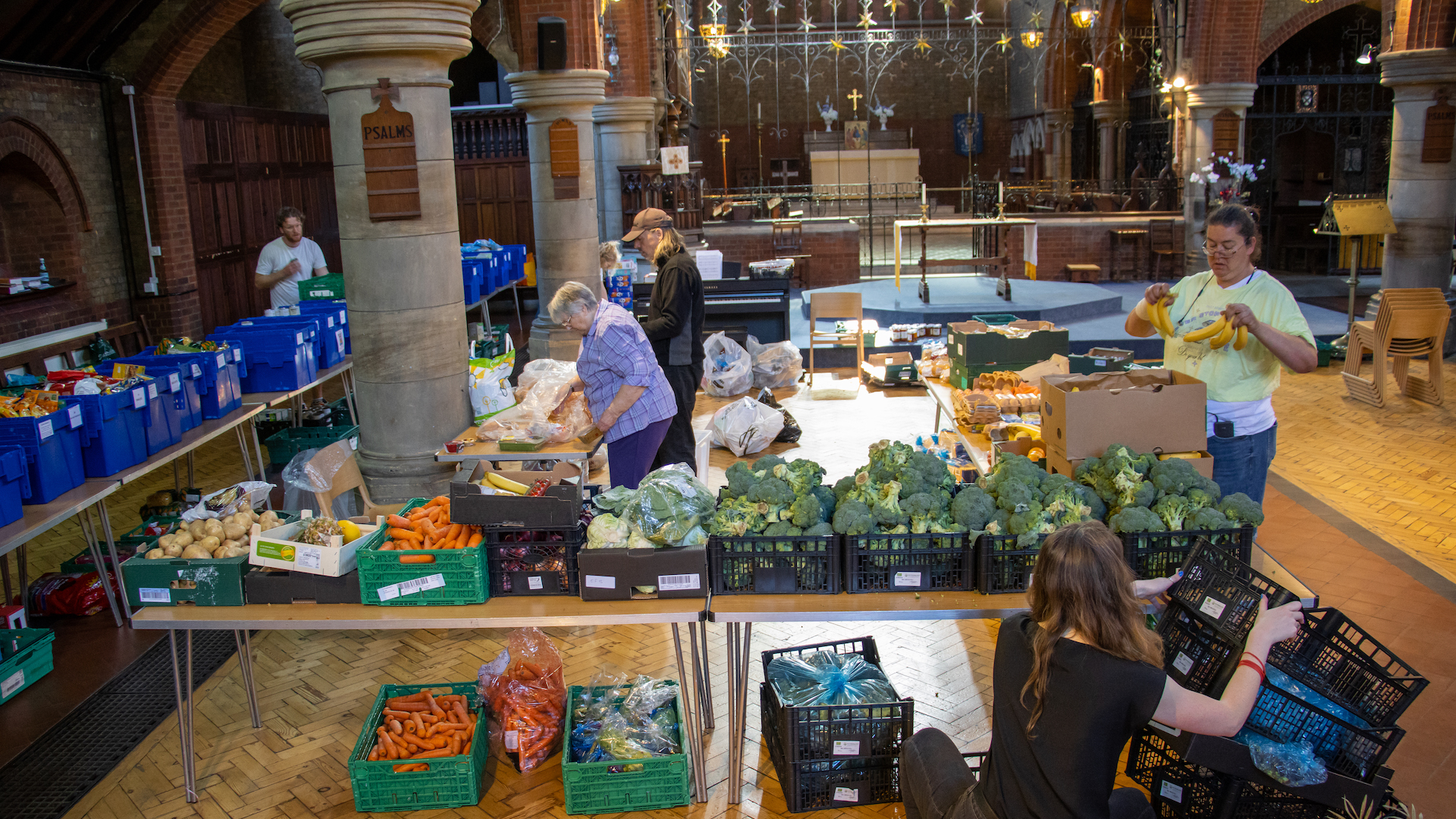Last week we had a visit from Finnish TV station YLE (the equivalent of the BBC in Finland). They were making a programme on poverty and food banks in Britain. We were happy to help, but it’s appalling to think that the poverty in the UK is so bad that it’s news abroad.
We talked to Sakuri, the Finnish presenter, about the poverty crisis we see on the frontline and how it worsens every week: the increase in numbers, the changing profile of our users, the alarming rise in the number of working people needing food bank support. And how the level of need, hunger and deprivation is deepening. How all the time we’re seeing new degrees of suffering.
Two weeks ago, we registered a new guest, Rosa, who has been struggling for some time. A single parent of two teenage children, she has resorted to searching the bins behind the supermarket to provide her family with food. “It’s ok,” she says. “They don’t know.”
Your support changes lives. Find out how you can help us help more people by signing up for a subscription
Like so many other guests, Rosa works. She currently has a part-time job which gives her 25 hours of work a week (she has asked for more hours, but there are no more shifts available). She was managing ok, but the increase in energy bills, food costs and general outgoings means that her monthly wage comes into her bank account and goes straight back out again. She does not want to be using the food bank. She stresses this again and again in the registration interview.
That day we also registered a full-time carer, Abi. She came to the food bank at 10am, on her way back home after a gruelling 12-hour night shift. She went back to a cold flat but at least she could put something in her empty fridge.










